Starting a record label is an exhilarating adventure that requires passion, strategic planning, and a deep understanding of the music industry.
Plus, it takes perseverance, hustle, and a willingness to learn and adapt.
That’s why we’re breaking down everything you need to know about how to start a record label successfully.
This way, you’ll be able to master this complex process and better understand the music business world.
- Identifying your vision in the music industry ✓
- Crafting a unique selling proposition ✓
- Developing a business plan for your own music label ✓
- Understanding legal frameworks and contracts ✓
- Securing funding and managing finances ✓
- Building a strong, recognizable brand ✓
- Strategies for effective social media presence ✓
- Networking and collaboration tactics ✓
- Finding and signing talented artists ✓
- Investing in quality recording equipment ✓
- Navigating digital distribution ✓
- Marketing strategies for maximum impact ✓
- The art of artist management ✓
- Balancing recording and promotional costs ✓
- Comparing independent labels and major labels ✓
- Much more about starting a new record label ✓
After reading this article, you’ll be equipped with all the knowledge and tools needed to start your record label.
You’ll know how to strategically navigate the music industry, build a brand that dominates, and achieve success more quickly.
Whether you dream of running an indie label or a major label contender, you’re about to take a huge step towards making that dream a reality.
So, let’s dive in…
Table of Contents
- How To Start a Record Label: The Essentials
- Legal Framework
- Building Your Brand
- Investing in the Right Recording Equipment
- Creating a Recording Contract That Works
- Distribution Strategies
- Marketing Your Music
- Bonus: Independent Labels vs Major Labels (Pros & Cons)
- How To Start a Record Label: Final Thoughts
How To Start a Record Label: The Essentials
Stepping into the world of music with the ambition to start a record label is a thrilling journey. It requires a blend of passion, strategy, and a deep understanding of the music industry. Let’s dive into the essential steps for establishing your own record label.
-
Identifying Your Vision and Goals in the Music Industry

Every successful record label starts with a clear vision…
So ask yourself, what do you see your label representing in a competitive music industry?
Is your focus on a specific genre, like indie rock or EDM, or are you aiming to break new ground with experimental sounds?
Your vision will guide your decisions and help you carve a unique space in the competitive world of music labels.
Setting realistic and achievable goals is a must, like:
- Signing a certain number of talented artists in the first year
- Releasing a debut album that hits streaming platforms like Apple Music
- Simply establishing a recognizable brand within the indie label community
Whatever your goals are, they should align with your unique vision.
Remember, the music industry is ever-evolving, and keeping ahead of trends while staying true to your vision and goals will set the foundation for long-term success.
This foresight is what differentiates many indie labels from major labels, so take it seriously and make sure to give it your all.
-
Creating Your Unique Selling Proposition (USP)
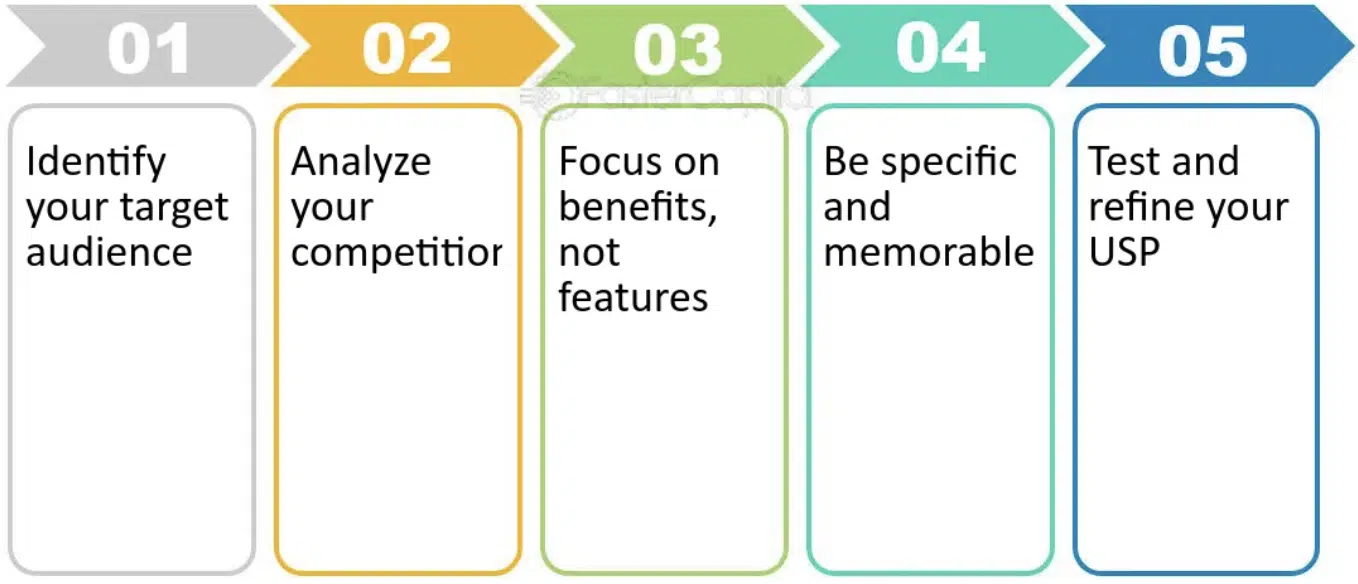
A unique selling proposition (USP) is what sets your record label apart in the competitive music industry.
It’s vital to know when you’re learning how to start a record label.
This could be your commitment to specific music genres, like focusing solely on indie rock or EDM, or your innovative approach to artist development.
For instance, your USP might be a dedication to environmental sustainability in the production and distribution of music.
This could, in turn, appeal to eco-conscious artists and listeners.
Analyze what successful independent record labels and major labels are doing right 一 Can you fill a gap they’re missing?
Maybe there’s an underserved music genre or a lack of support for emerging digital music producers.
Your USP should address these gaps while aligning with your passion for music.
Once identified, your unique selling proposition should be evident in every aspect of your label; from your website to your social media presence, and even in your recording contracts.
For example, if your USP is nurturing up-and-coming talent, showcase this by highlighting the success stories of new artists you’ve signed and promoted.
-
Crafting a Solid Record Label Business Plan

Your record label business plan is more than a document 一 it’s a meticulous blueprint for your record label’s future.
A solid business plan should detail your:
- Market analysis
- Business structure
- Funding strategy
- Marketing plans
For example, let’s say your target market is independent artist/producers in the EDM genre…
Your record label business plan should outline how you’ll connect with and attract these artists, and how you’ll promote their music on digital platforms.
A key component of your record label business plan, like it or not, is financial planning.
Include detailed projections for income, such as expected revenue from digital distribution, expenses like recording equipment, marketing campaigns, and potential legal fees.
Your record label business plan should set realistic milestones.
For example, signing your first artist within six months or releasing your first album within a year.
These milestones will keep you focused and help potential investors understand your label’s growth trajectory.
Legal Framework
When you’re diving into the music business, understanding the legalities is non-negotiable. It’s about protecting your label, your artists, and your art.
-
Choosing the Right Business Structure for Your Label
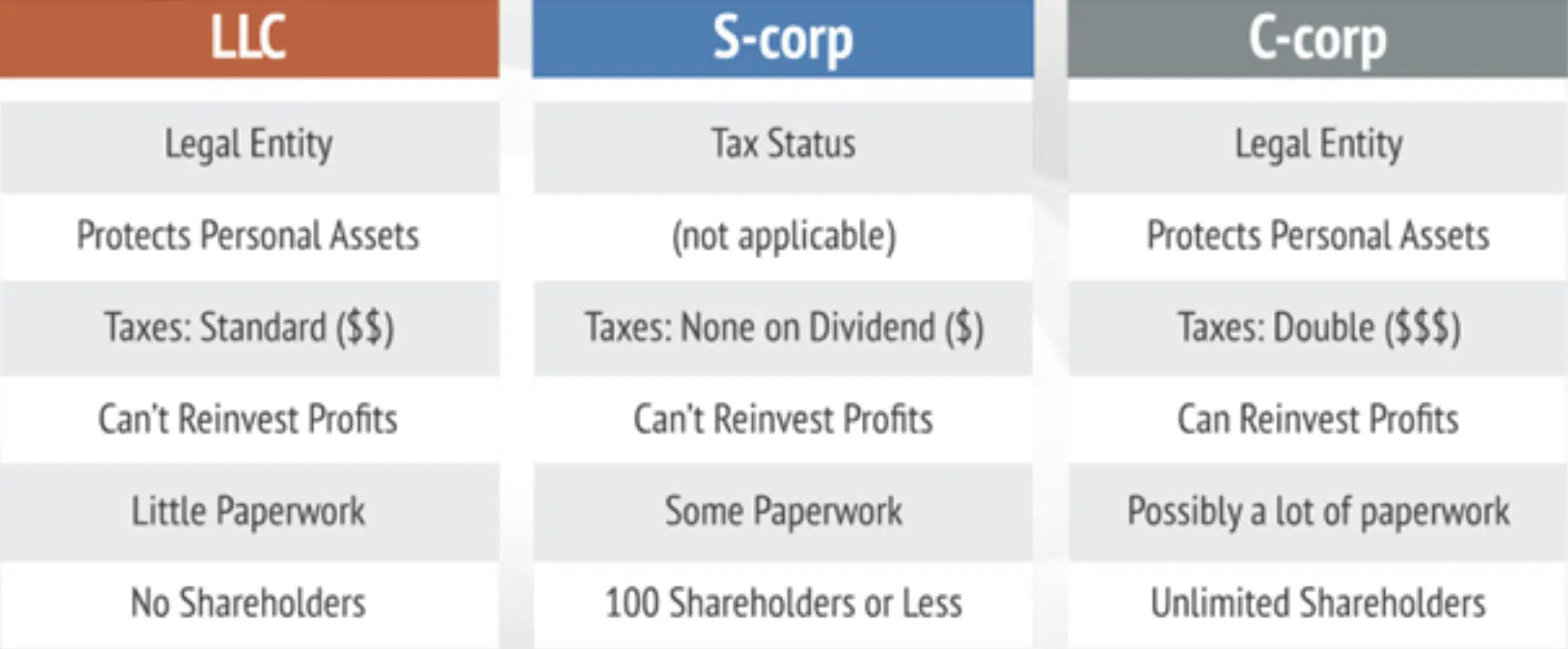
The choice of business structure for your record label handles everything, from tax obligations to how you handle legal matters and artist contracts.
The common structures include:
- Limited Liability Company (LLC)
- S Corporation (S Corp)
- C Corporation (C Corp)
Knowing each one inside and out is super important for success.
An LLC is ideal for new indie labels due to its flexibility and protection of personal assets from business liabilities. This structure is particularly beneficial for indie labels that are self-funded and looking to minimize personal financial risk.
An S Corp is another option, suitable for labels that require a more traditional business setup but with certain tax benefits. Profits and losses in an S Corp can pass through to your personal tax return, avoiding double taxation, which is a common issue with C Corps.
However, S Corps have restrictions on the number of shareholders, which might be limiting if you plan to expand significantly.
A C Corp is typically used by larger businesses and is ideal if you plan to raise substantial outside investment or eventually go public. It allows for an unlimited number of shareholders and offers significant growth potential, but it also involves more complex regulations and tax structures.
Let’s say an independent label starts as an LLC due to its simplicity and lower compliance requirements, perfect for managing a few artists and handling modest revenue streams from digital distribution and record sales.
As it grows, the label might transition to a C Corp structure to attract venture capitalists or angel investors 一 aiming to compete with major labels in the industry.
This shift allows the label to issue stocks, a compelling incentive for investors, and positions it for larger-scale operations.
NOTE: Each business structure has its unique advantages and legal implications, so it’s wise to consult with a music lawyer or a financial advisor.

Clear legal contracts are the foundation of trustworthy relationships in the music business, especially when you’re starting a record label from the ground up.
However, they can be a little intimidating.
Just remember, these contracts should detail every aspect of your recording agreement with artists, including:
- Royalty splits
- Rights to music
- Duration of contracts
For instance, you might offer a more artist-friendly royalty rate compared to major labels to attract emerging talent.
Your recording agreements should outline who bears the recording costs, album release schedules, and how profits are shared.
Be clear about the rights you’re acquiring and what the artist retains 一 this transparency will help build a loyal roster of artists.
Utilize the expertise of a music lawyer to draft and review your contracts.
They can ensure that your recording agreement complies with industry standards and protects both your label’s and artists’ interests.
For example, a music lawyer can help you navigate the complexities of digital rights management, which is key in today’s streaming-dominated industry.
-
How to Secure Funding for Your Record Label
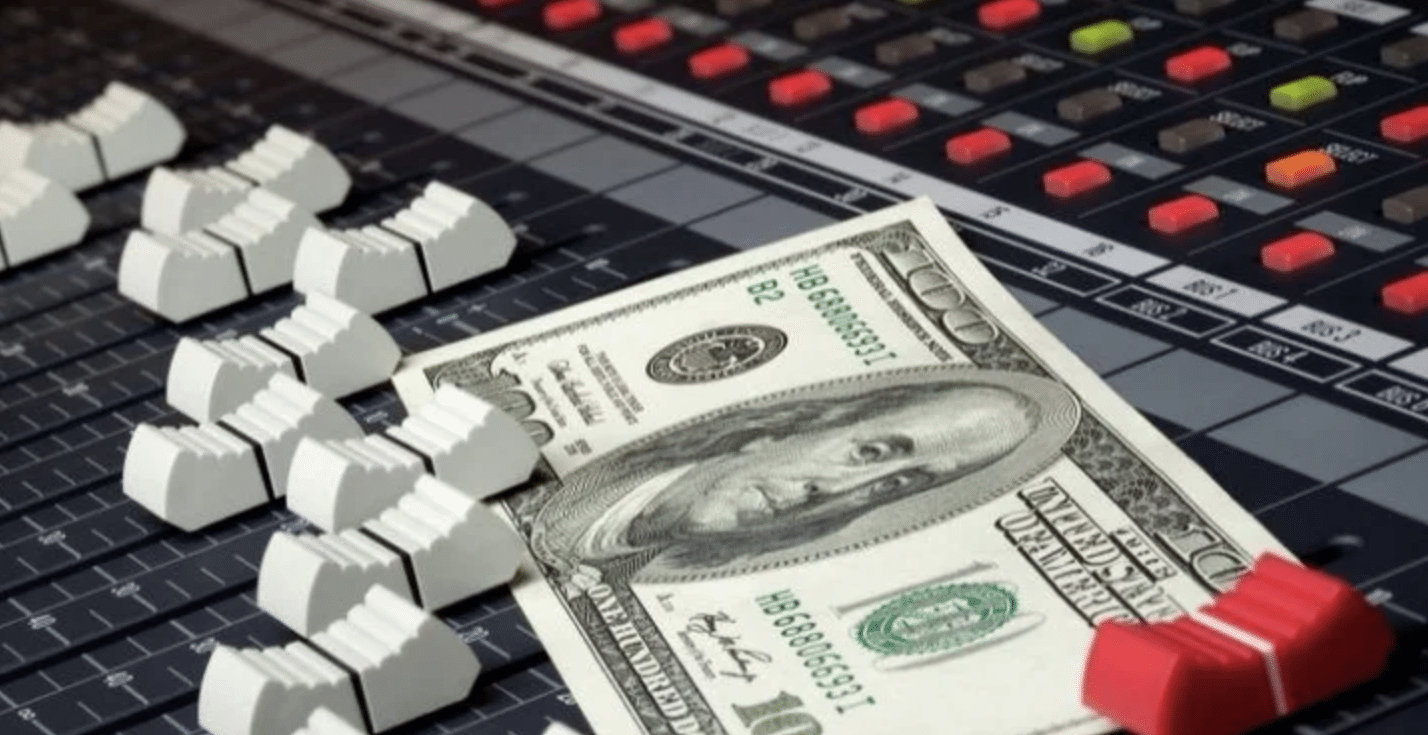
To kickstart your record label, especially when you’re in the learning stages of how to start a record label, it’s crucial to secure funding.
You might start with personal savings, which gives you full control but can be limited.
When you’re starting a record label certain assistance can provide a more substantial financial base, like:
- Bank loans (whether it’s a few hundred dollars or thousands)
- Angel investors in the music business
- Music industry grants
For instance, securing a loan might mean presenting a pristine record label business plan to a bank 一 highlighting your strategies for profitability in the music industry.
Crowdfunding platforms like Kickstarter offer a modern approach to raising funds, especially for independent labels.
They not only provide the necessary capital but also help in validating your record label’s concept in the public eye.
Additionally, reaching out to investors interested in the music industry can be a game-changer.
An investor might be particularly interested in your approach to digital distribution or your plan to sign talented artists who resonate with current music trends.
You’ve got to get creative and think outside of the box.
-
Setting Up Your Business Bank Account

Once funding is secured, setting up a business bank account is a fundamental next step for your record label.
This account separates your label’s finances from your personal assets and ensures clarity and professionalism in financial management.
For instance, when your record label starts generating revenue from streaming platforms or physical distribution, these funds will go into your business account.
This will simplify tax-filing and financial tracking.
Make sure to choose a bank that offers services tailored to small businesses and understands the nuances of music business.
Some banks might offer perks like lower fees for transactions related to digital distribution.
Or, they might have connections with industry professionals that can aid in growing your music label.
This step is crucial for managing everything from recording costs to paying out royalties to artists and music lawyers.
Building Your Brand
Your brand is the voice and face of your record label, capturing the attention of both artists and listeners alike. Think of record labels you know… that picture in your head is all thanks to brand recognition.
-
Establishing Your Social Media Presence

In today’s digital age, a strong social media presence is essential for a record label’s success.
I mean, unless you live under a rock, I’m sure you’re aware of how vital and powerful social media can be.
Platforms like Instagram and Tik-Tok are not just promotional tools but also spaces to engage with your audience and build community.
For instance, you’ll want to create a relatable, authentic, yet irresistible image by:
- Sharing stories about your label’s journey
- Highlighting new artists
- Posting about behind-the-scenes processes
- Hyping up all the talent and future plans
- Etc.
Consistency in your social media posts helps in maintaining visibility and relevance.
Engaging content can range from artist interviews and teasers of upcoming releases, to insights into the music production process.
Remember, your social media should reflect the vibe of your label, whether you’re an indie label focusing on experimental music or a label that pushes mainstream pop.
NOTE: Short music videos on platforms like TikTok can really gain you some exposure when starting a record label, so don’t skimp on the videos.
-
Pro Tip: Collaborating with Industry Professionals
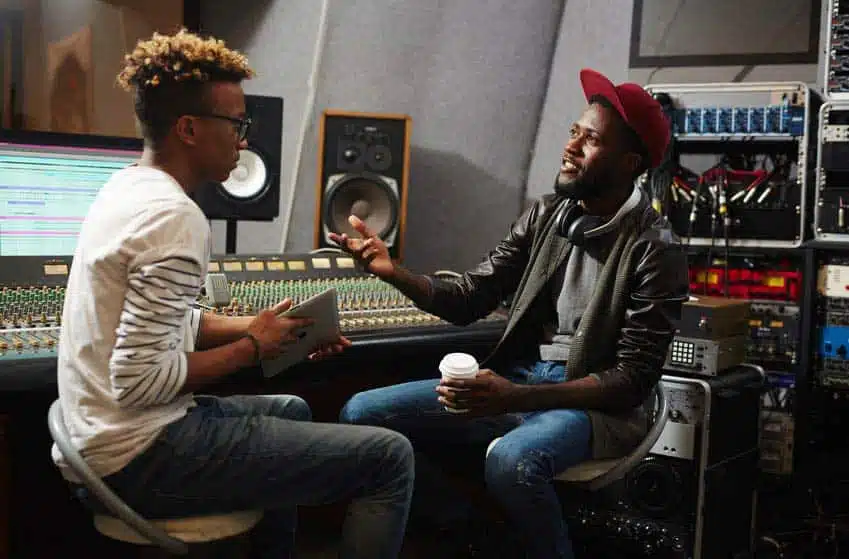
Building a network of industry professionals is vital when you’re mastering how to start a record label.
These connections provide you with resources, advice, and opportunities.
For example, a good relationship with a music lawyer can guide you through the complexities of recording contracts.
And, connections with other indie labels can open doors to collaborative projects.
Collaboration can be a powerful tool for growth.
Partnering with established labels, artists, or even brands can elevate your label’s profile.
For instance, a collaboration with an established artist on a record can bring your label to the attention of a wider audience 一 boosting your credibility in the music industry.
-
Finding and Signing Talented Artists

The core of your own music label is the artists you sign.
Scouting for talent requires attending live shows, exploring online platforms like SoundCloud, and networking within the music community.
Look for independent artists who not only have talent but also align with the vision and vibe of your label.
Once you find potential artists/singers, the next step is signing them to your label, which involves negotiating terms that are fair and beneficial for both parties.
For example, you might offer an artist a recording contract that includes a favorable royalty split and support in digital distribution.
As well as a clear release strategy for their own music.
Investing in the Right Recording Equipment

High-quality recording equipment is crucial for a music label, which is an investment that directly affects the quality of music you produce and release.
Whether you’re setting up a home studio or renting a professional recording studio space, ensure that you have the best equipment your budget allows.
For instance, investing in a top-notch mixing console and microphones can significantly enhance the recording quality of your artists’ own music.
While top-of-the-line equipment is ideal, it’s also essential to balance your budget.
Research and choose equipment that offers the best quality within your financial constraints.
Remember, sometimes second-hand gear that has been well-maintained can be just as effective as brand-new, expensive equipment.
Creating a Recording Contract That Works

A recording contract is a key document that outlines the relationship between record labels and artists/producers, which should detail aspects like:
- Royalties
- Rights
- Responsibilities
Ensuring that the record label contract is fair and transparent is crucial for maintaining a positive relationship with your independent artists (and other industry professionals).
For example, a record label contract might specify that the artist receives a certain percentage of revenue from streaming platforms.
Basically, it outlines a clear and fair revenue-sharing model.
Consulting with a music lawyer when drafting recording contracts ensures that all legalities are covered and both parties’ interests are protected.
A well-drafted contract prevents future disputes and lays the foundation for a successful partnership.
Distribution Strategies
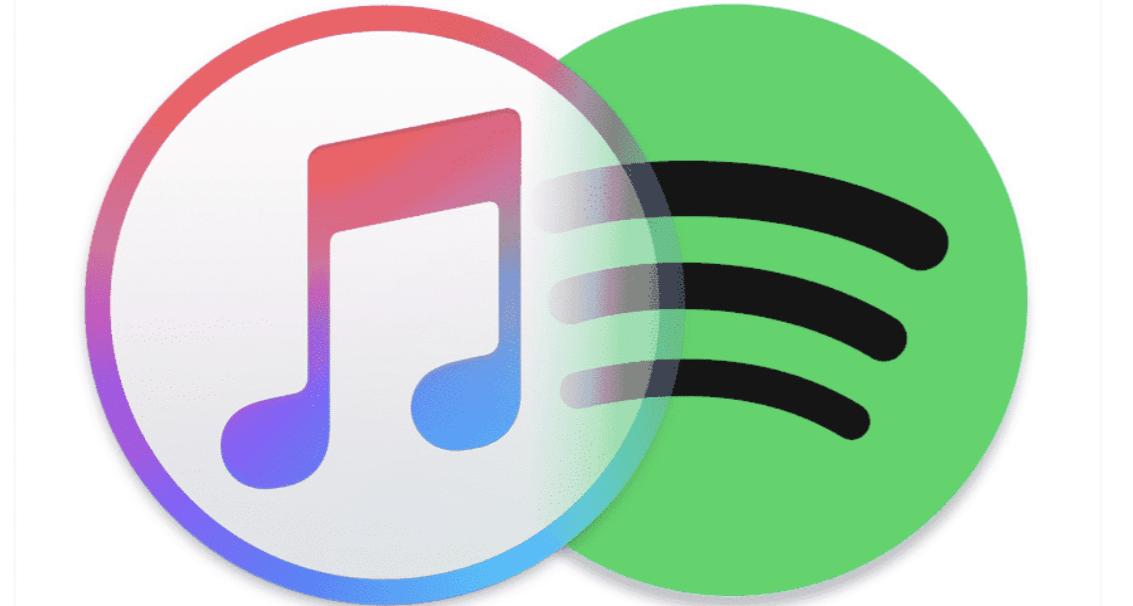
In today’s music industry, digital distribution reigns supreme.
Your record label must have a strong digital strategy to ensure your artists’ music reaches the widest possible audience.
Platforms like Spotify, Apple Music, and Tidal offer global reach 一 making them indispensable in your distribution plan.
For instance, knocking out exclusive deals with digital platforms for early releases can create buzz and drive streams.
Selecting the right digital distributor is a true game-changer; it impacts how your music is placed on various streaming platforms.
Look for distributors like DistroKid or TuneCore, which offer fast, wide-reaching distribution and transparent royalty reporting.
Consider their fees, whether they take a percentage of sales or charge an upfront fee, and their additional services like promotional support or playlist pitching.
Utilizing your digital distribution effectively involves more than just getting your music on platforms, it’s about:
- Strategic release timing
- Understanding platform-specific algorithms
- Using data analytics for marketing & promotional efforts
For example, analyzing streaming data can inform you which tracks resonate with your audience, helping you to tweak your marketing strategies to capitalize on these trends.
NOTE: While the focus in recent years has shifted to digital, physical distribution still holds some value, especially for certain genres and demographics.
Vinyl records have seen a resurgence, and having your artists’ albums available in record stores can be a significant addition to your label’s portfolio.
So, collaborating with physical distributors who have established networks can ensure your physical copies reach record stores and get into the hands of radio stations for broader exposure.
-
Pro Tip: Choosing a Digital Distributor
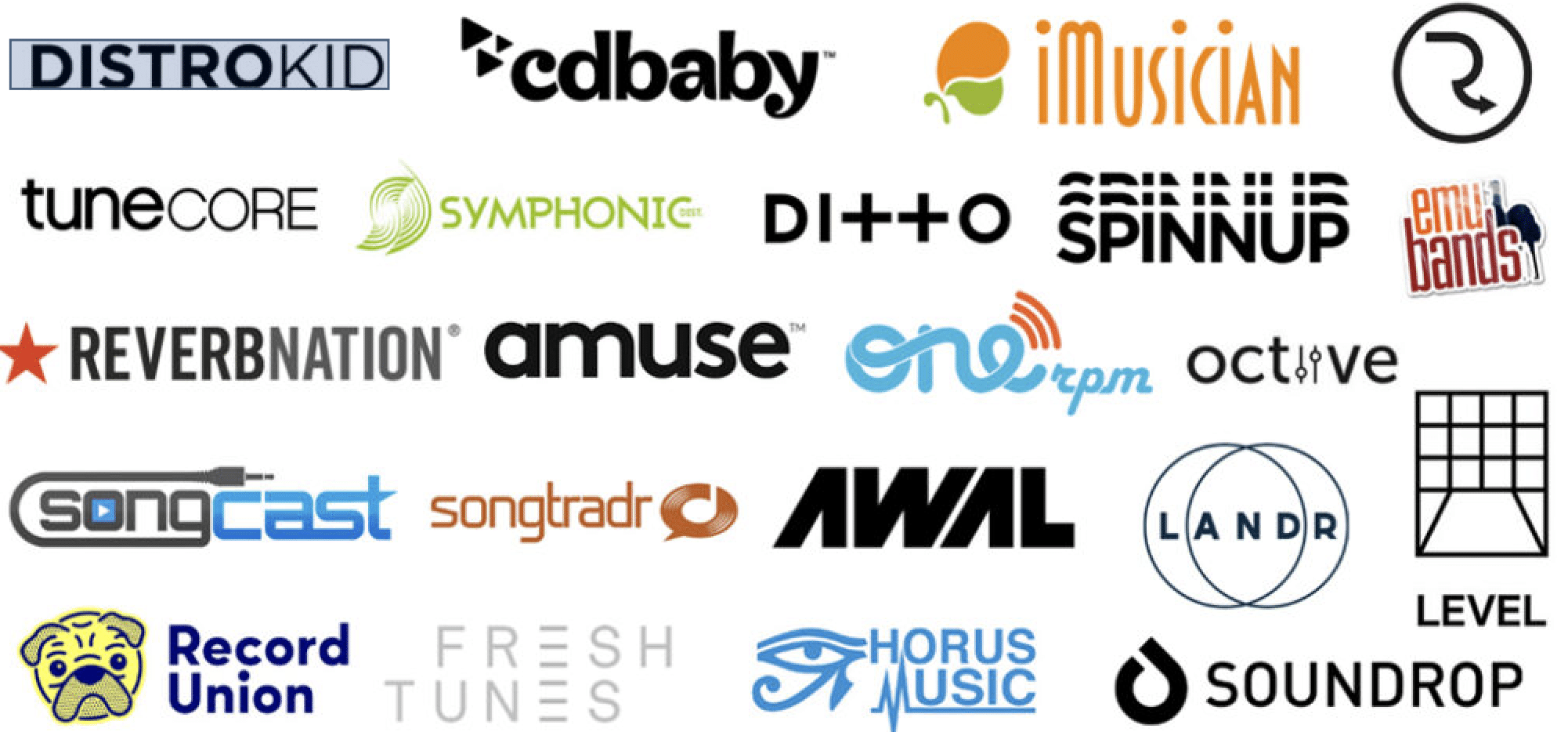
When selecting a digital distributor, analyze their offerings closely.
Some key factors to consider include:
- The range of platforms they distribute to
- Their fee structure (a percentage of sales/charge an upfront fee)
- Their payout frequency
For example, some distributors might offer weekly payouts, which can be beneficial for cash flow, especially for a new label.
Building a strong relationship with your chosen digital distributor can lead to additional benefits such as promotional support.
Some distributors might feature your releases in their newsletters or on their social media, providing extra visibility.
For instance, if your digital distributor has a good relationship with Spotify, they might help get your music into curated playlists.
Thich will, in turn, significantly boost your streams and exposure.
Marketing Your Music
Getting your music heard in the crowded landscape of today’s music business is all about effective marketing. From social media and streaming platforms to t-shirts and contests, getting your label name out there is key. So, when you’re learning how to start a record label, there are a few super important keys to consider.
-
Developing a Solid Release Strategy

A solid release strategy is essential for the success of your music label.
It includes:
- Deciding on release dates
- Coordinating with your digital distributor for uploads to streaming platforms
- Planning promotional activities
For example, you could align an album release with a significant event or holiday, like Black Friday, to maximize impact.
Anything to get your new label name out there and compete with the larger label is non-negotiable.
Building anticipation before a release can greatly impact its success.
Consider tactics like releasing a single or music video ahead of the album, or providing exclusive previews on social media.
Collaborating with influencers or other artists for cross-promotion can also broaden your reach.
After the release, your work isn’t over… continuous promotion is key to keeping the momentum going.
This could involve organizing virtual or live events, conducting interviews with the artists, or engaging in social media campaigns.
Anything to keep the conversation around your new music alive.
Sure, you might have amazing artists, release music constantly, sell merchandise, etc., but if no one knows your label name, it’s all for nothing.
Remember, starting a record label takes drive, hustle, and consistent marketing 一 it’s not just a legal business, it’s a competitive music career choice.
-
Artist Management: A Quick Breakdown

As a record label owner, artist management is (obviously) part of your responsibility.
When you sign artists, it involves:
- Guiding the artists’ careers (from cover art to concerts and everything in between)
- Planning their release schedules
- Ensuring their needs are met
Good artist management can make a significant difference in an artist’s success and, by extension, the success of your label.
It’s important to balance the goals of your label with those of your artists.
This includes negotiating fair terms in recording contracts, supporting their artistic vision, and aligning their unique music with your label’s brand, and marketing strategies.
Effective communication and mutual respect are key in these relationships.
I mean, think of how many times you’ve heard of other labels, even dealing with independent music, making their own art ists unhappy… you don’t want to be like that other business.
-
Pro Tip: Managing Recording Costs and Promotional Costs
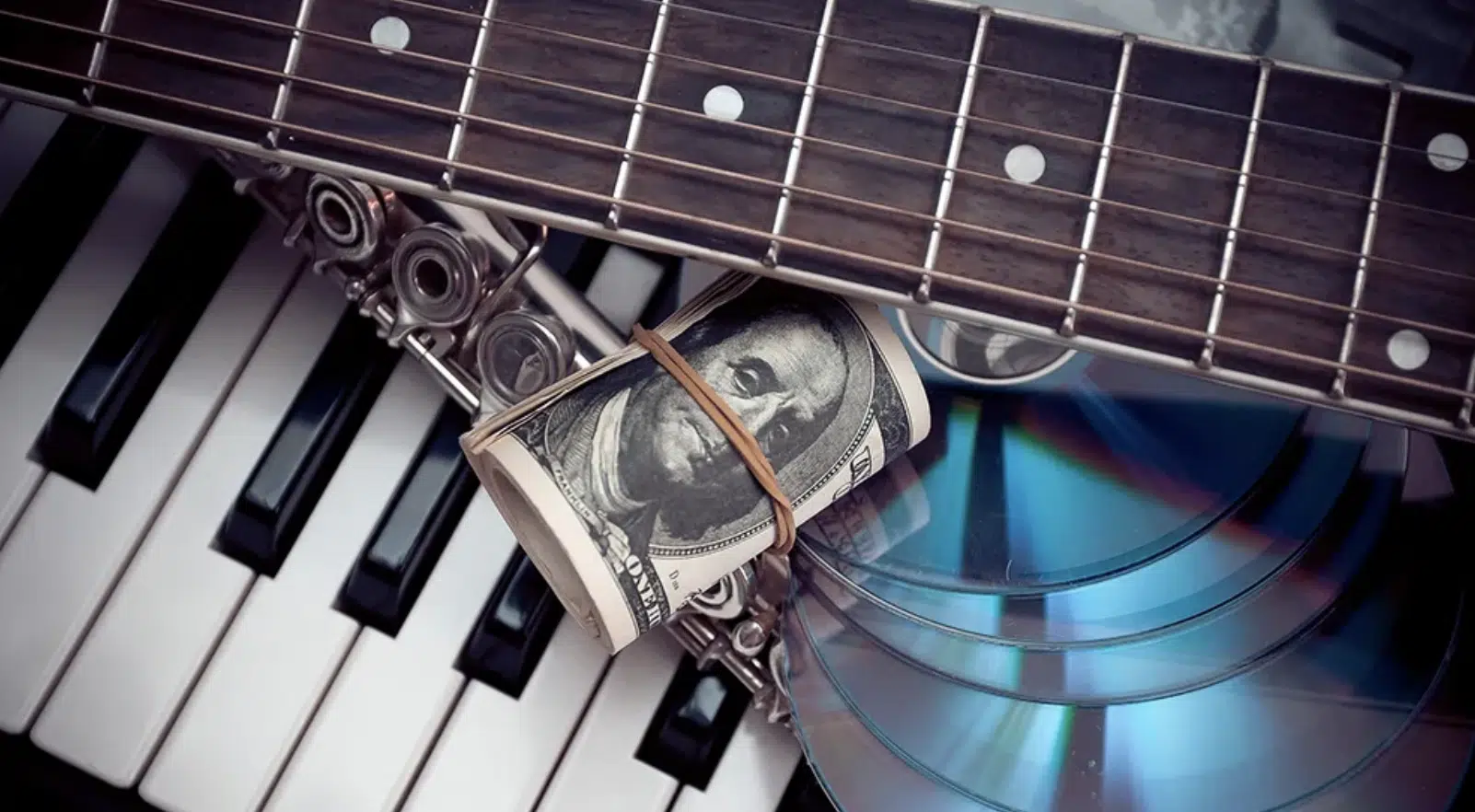
Managing your recording costs, manufacturing costs, and promotional costs efficiently is crucial for the financial health of your record label.
This means:
- Negotiating fair rates for studio time
- Exploring cost-effective marketing strategies
- Keeping a close eye on expenses
Not only will it help save money/make money in the long run, but ensures, when you’re starting a record label, you’re not going to go broke.
Utilizing digital marketing tools can be a more affordable way to promote your music compared to traditional advertising.
Allocate your resources based on the potential return on investment.
For instance, investing more in an artist who has a proven track record of streaming success might be more beneficial than spreading your budget too thin across multiple projects.
I mean, you don’t want to lose it all just when you’ve mastered how to start a record label, right?
Bonus: Independent Labels vs Major Labels (Pros & Cons)
Knowing the differences between independent record labels and major record labels is pivotal when you’re learning how to start a record label, so let’s break it down. And remember, starting a record label involves knowing all the ins-and-outs of your field; giving that larger label energy.
-
Pros of Independent Record Labels

Independent labels, often praised for their flexibility, personal touch, and creative freedom, provide a level of artistic freedom that’s hard to find in the more rigid structures of major labels.
For instance, as an independent label, you can tweak your release strategy to each artist, singer, or producer 一 giving their music the personalized attention it deserves.
This autonomy allows independent labels to experiment with innovative music styles and unconventional artists, often leading to groundbreaking musical discoveries.
-
Cons of an Independent Record Label
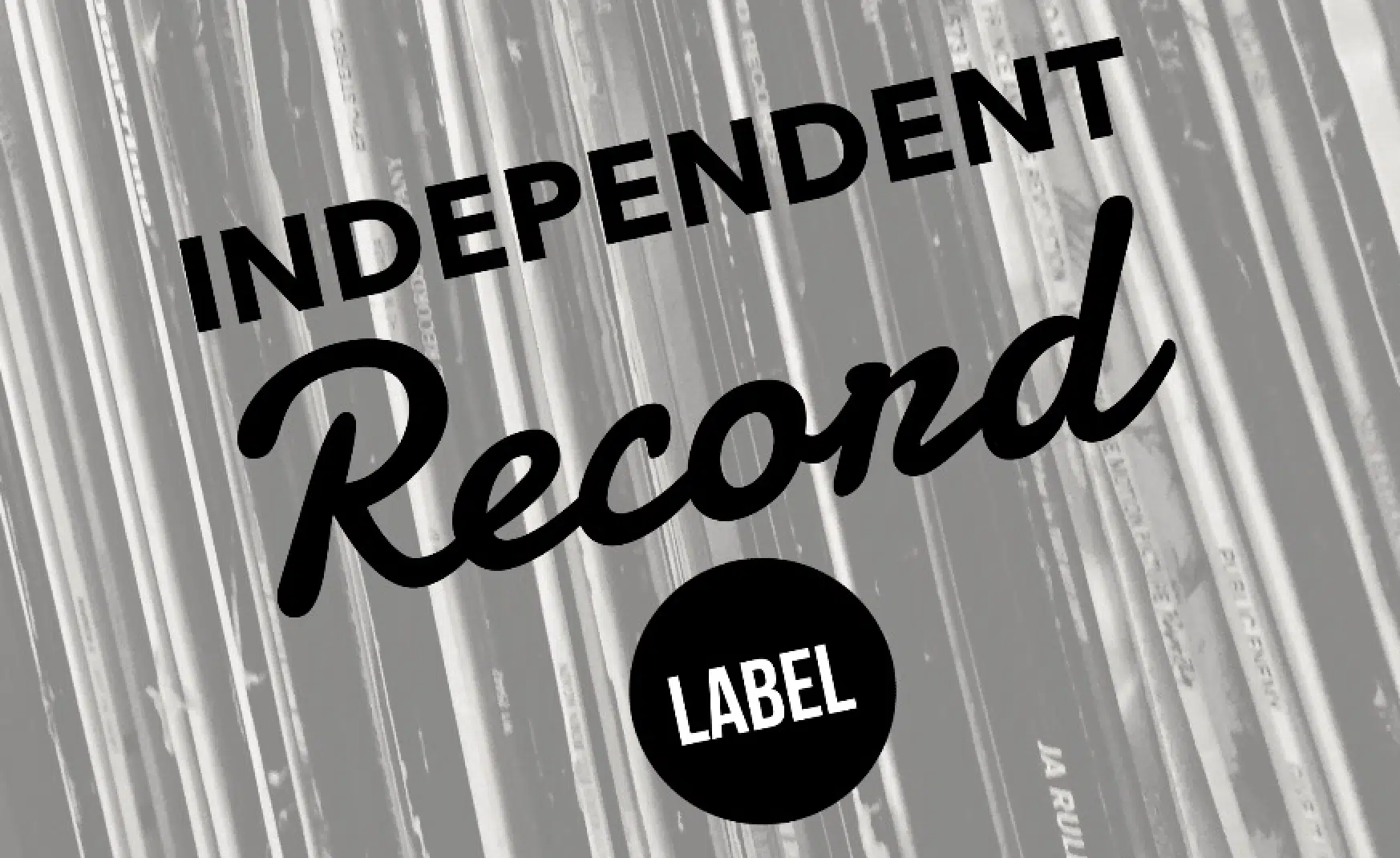
Operating a successful independent record label comes with its challenges.
Certain limited resources can be a significant hurdle, like:
- Funding
- Marketing
- Distribution
Unlike major labels, independent labels often start with a much smaller budget, which means you might have to be more creative with your recording costs and promotional strategies.
This financial constraint can sometimes limit the scope of your projects and the extent of your market reach.
So, make sure you fully understand these limitations or hurdles before going all in with an independent record label.
-
Pros of Major Labels
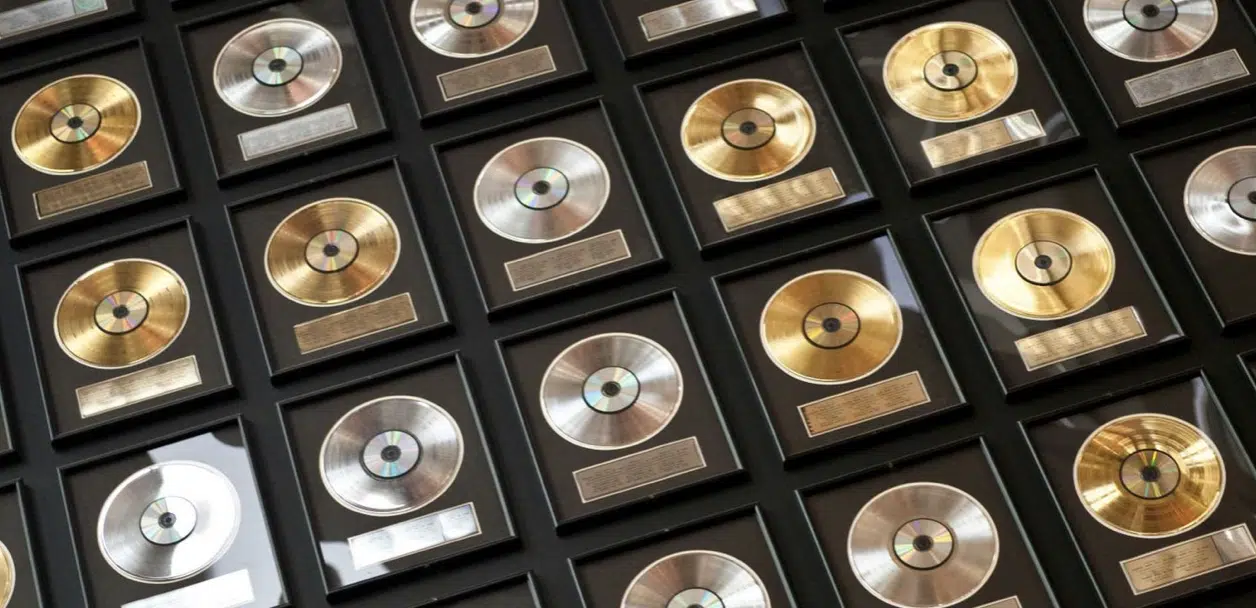
Major labels bring with them a powerhouse of resources.
With larger budgets for recording, marketing, and distribution, major labels can offer artists a wide-reaching platform.
For an artist signed to a major label, this often means:
- Greater visibility
- More extensive promotional campaigns
- Access to top-tier recording equipment and facilities
Major labels also have established connections within the industry, which can be invaluable for artists looking to make a significant impact quickly.
-
Cons of Major Labels
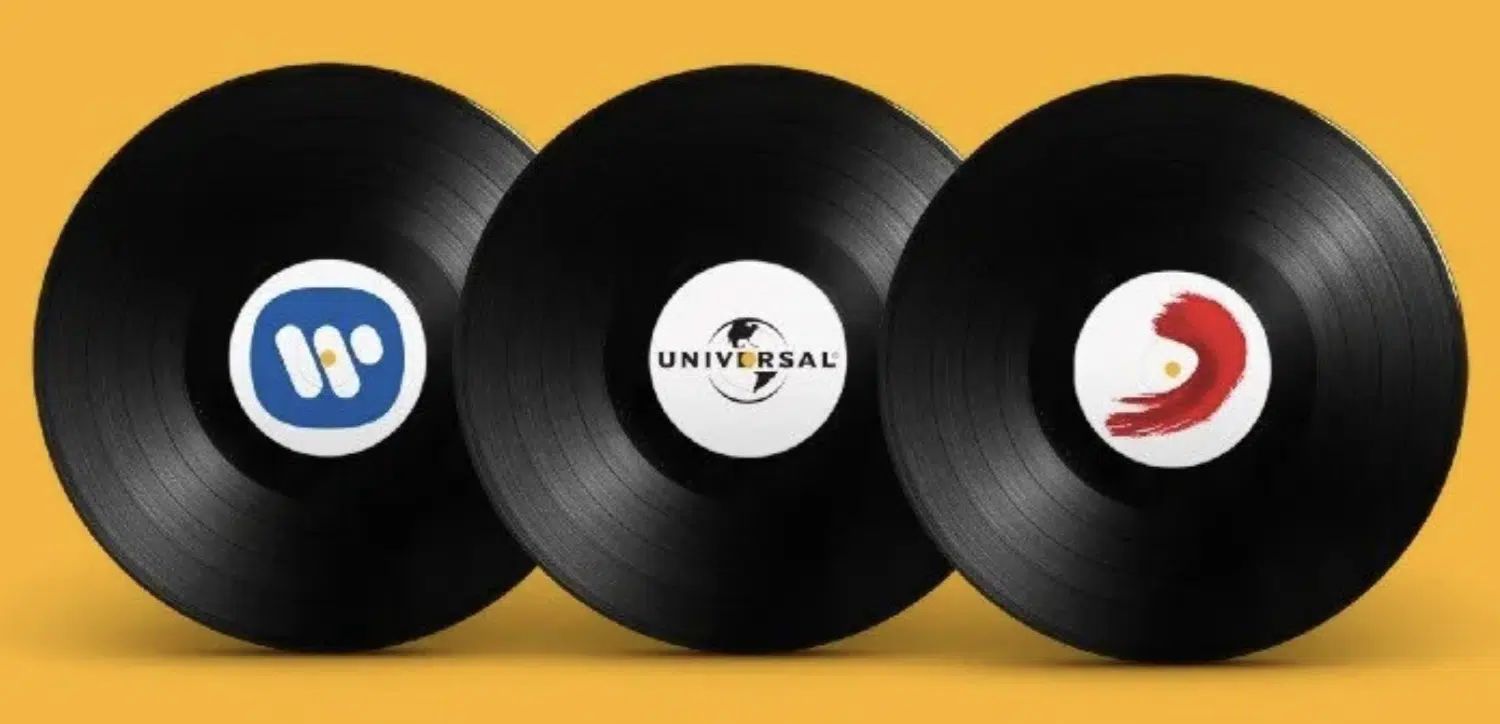
Major labels can sometimes be less flexible, with artists often finding themselves part of a much larger machine.
This can lead to less creative control over their own label freedoms, music, and image.
Major labels tend to focus on market trends and commercial viability, which can sometimes stifle artistic expression.
Artists with niche or unconventional musical styles might find it challenging to fit into the major label mold.
-
Choosing the Right Fit For You

For someone starting their own record label, the decision between functioning as a successful independent record label or aspiring to grow into a major label involves careful consideration of these pros and cons.
Independent labels offer a more intimate, artist-focused approach but with the challenge of limited resources.
Major labels provide extensive resources and reach but might compromise on personal touch and artistic freedom.
Understanding these dynamics is crucial in defining the path and identity of your own record label.
So, whether you’re striving for your own independent record label or wanting to go the major label route, make sure to do extensive research.
How To Start a Record Label: Final Thoughts
As you kickstart your journey to start a record label, remember that the music industry offers numerous avenues for growth and creativity.
And not just in producing and releasing music, but also in related fields.
For instance, consider exploring opportunities like this highly renowned Affiliate Program, where you can potentially earn a job-replacing income by promoting high-quality, unique music production products.
With a commission structure offering 50% on initial sales and 10% lifetime commissions on future purchases made by your referrals, programs like these can be invaluable.
It’s a lucrative complement to your future record label business, as well.
This program taps into the expansive marketing power of music, with over 150 products to promote (including MIDI packs, plug-ins, and sample packs), catering to all genres.
Diversifying your interests in the music industry, such as through affiliate programs, not only provides an additional revenue stream but also deepens your understanding and network within the industry.
This expanded perspective can be invaluable in running your record label more effectively.
Whether it’s through direct music production, promotion, education, or collaboration, each aspect feeds into a masterful understanding of what it takes to succeed.
As you move forward with your record label, keep an open mind to these opportunities.
They could not only support your main venture but also open doors to new experiences, collaborations, and pathways to success in the ever-evolving world of music.
Until next time…







Leave a Reply
You must belogged in to post a comment.